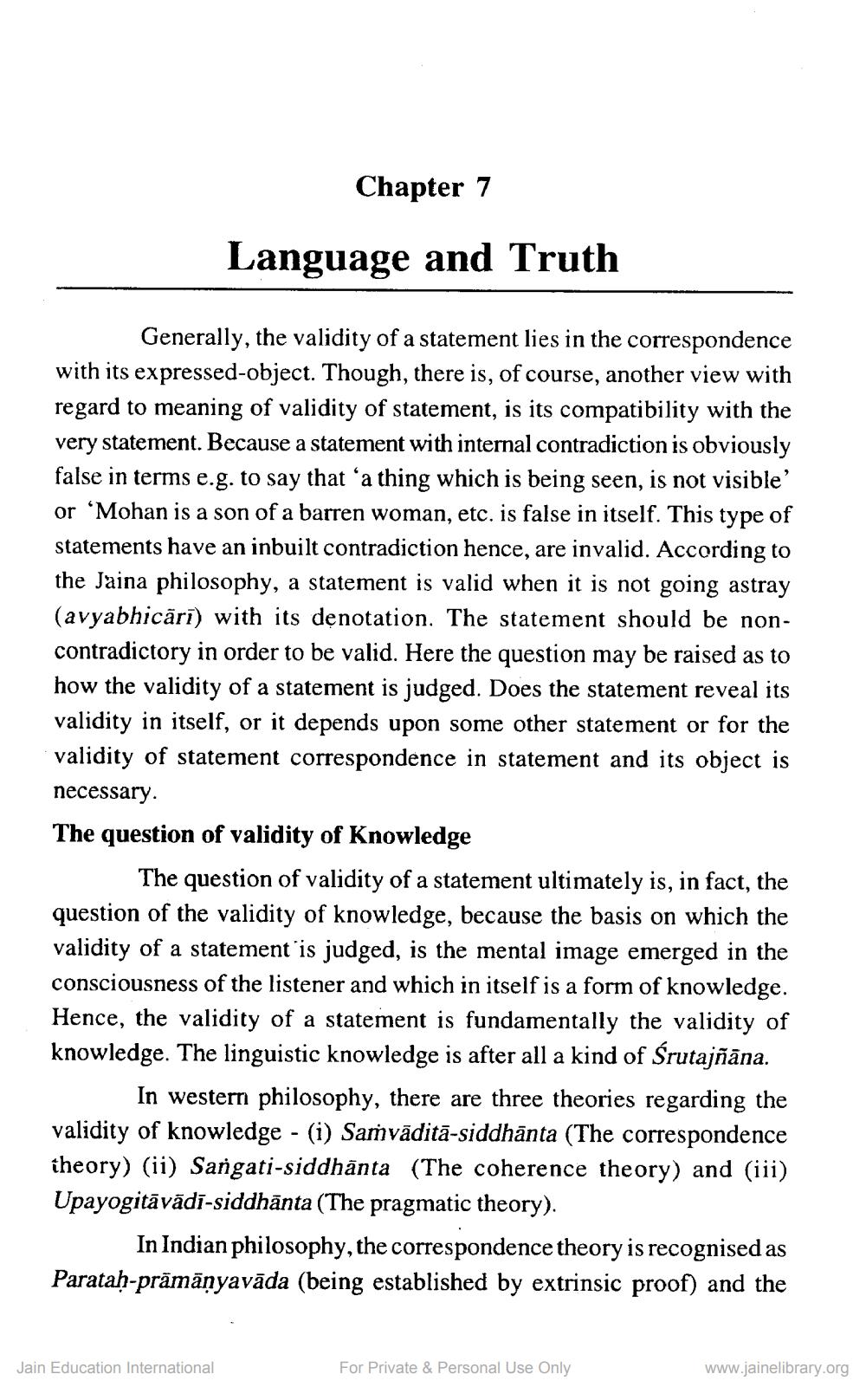________________
Chapter 7
Language and Truth
Generally, the validity of a statement lies in the correspondence with its expressed-object. Though, there is, of course, another view with regard to meaning of validity of statement, is its compatibility with the
tatement. Because a statement with internal contradiction is obviously false in terms e.g. to say that ‘a thing which is being seen, is not visible' or ‘Mohan is a son of a barren woman, etc. is false in itself. This type of statements have an inbuilt contradiction hence, are invalid. According to the Jaina philosophy, a statement is valid when it is not going astray (avyabhicārī) with its denotation. The statement should be noncontradictory in order to be valid. Here the question may be raised as to how the validity of a statement is judged. Does the statement reveal its validity in itself, or it depends upon some other statement or for the validity of statement correspondence in statement and its object is necessary. The question of validity of Knowledge
The question of validity of a statement ultimately is, in fact, the question of the validity of knowledge, because the basis on which the validity of a statement is judged, is the mental image emerged in the consciousness of the listener and which in itself is a form of knowledge. Hence, the validity of a statement is fundamentally the validity of knowledge. The linguistic knowledge is after all a kind of Śrutajñāna.
In western philosophy, there are three theories regarding the validity of knowledge - (i) Saṁvāditā-siddhānta (The correspondence theory) (ii) Sangati-siddhānta (The coherence theory) and (iii) Upayogitāvādi-siddhānta (The pragmatic theory).
In Indian philosophy, the correspondence theory is recognised as Paratah-prāmānyavāda (being established by extrinsic proof) and the
Jain Education International
For Private & Personal Use Only
www.jainelibrary.org




